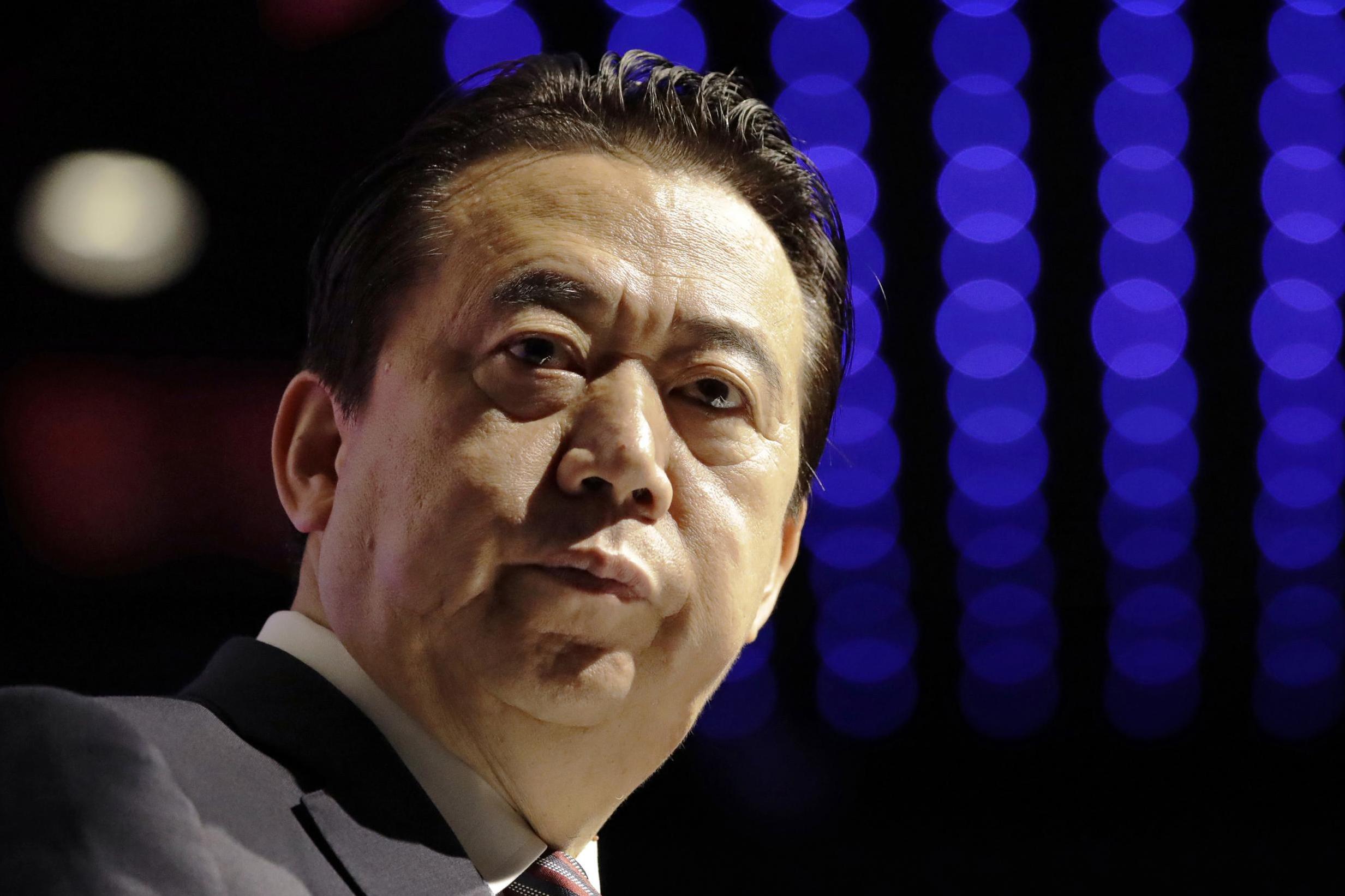Interpol's new chief set to be Russian: 'Putin will attempt his most audacious operation yet'
Alexander Prokopchuk, a former head of Russia’s interior ministry, reportedly favourite to win presidency
A Russian official has been tipped to become the next head of Interpol, despite accusations Moscow uses the international policing agency to target critics.
Alexander Prokopchuk, a former head of Russia’s interior ministry, is reportedly favourite to take over as president from Meng Hongwei, who was detained by China and is being investigated over alleged corruption.
Mr Prokopchuk is one of only two candidates in the running for the job, and British officials have already concluded he will win due to the level of support among the agency’s member states, according to The Times.
A decision on who will take up the role will be decided by a vote among member state delegates on Wednesday at Interpol’s annual general assembly, which is being held in Dubai.
But critics say Mr Prokopchuk’s appointment could help the Kremlin abuse Interpol’s international arrest warrant procedure, known as its red notice system.
Bill Browder, an outspoken critic of Vladimir Putin, was arrested earlier this year by Spanish police, who cited an Interpol arrest warrant at Russia’s request.

The British-based businessman said at the weekend Mr Prokopchuk’s candidacy was “absolutely astonishing”.
"Here’s the room where Putin will attempt his most audacious operation yet: to take over Interpol so he can expand his criminal tentacles to every corner of the globe," Mr Browder said in response to a tweet from Interpol's Twitter account.
On Monday, Russian prosecutors announced charges of global fraud against Mr Browder and said Moscow had the right to arrest the businessman in any country, despite their previous failures to do so.
Mr Browder is credited with playing a key role in the creation of the Magnitsky Act – a range of sanctions imposed by the US in 2012 on top Russian officials accused of corruption.
The sanctions were named in honour of Mr Browder’s Russian lawyer, Sergei Magnitsky, who uncovered a £174m fraud believed to have involved Russian officials against Mr Browder’s investment firm, Hermitage Capital Management.
Mr Magnitsky was imprisoned on what were widely considered to be false charges and died in jail amid claims he was tortured. A Home Office minister called it an “atrocious murder”.
Russian prosecutors now say, without providing evidence, that Mr Browder probably poisoned Magnitsky himself.
“I cannot believe that a Russian official will lead Interpol,” tweeted Michael McFaul, a former US ambassador to Russia who Mr Putin considers an enemy.
“Russia has an unimpressive record of practising the rule of law at home and a proven track record of abusing red notices and diffusions for political purposes.”
Alexey Navalny, a democracy activist and Mr Putin’s most prominent domestic opponent, said: “Our team has suffered from abuse of Interpol for political persecution by Russia. I don’t think that a president from Russia will help to reduce such violations.”
A lawyer specialising in Interpol extradition cases, Yuriy Nemets, however, said while the appointment would be “problematic”, Interpol’s president has “limited powers” and internal mechanisms “should prevent any abuse of authority”.
Interpol's president leads an executive committee that meets every four months to set policy and direction for the organisation. The agency's supreme authority, however, sits with the 192-member general assembly.

Mr Prokopchuk is currently one of four vice-presidents of the agency, after being controversially being elected to the position in 2016 and becoming the first Russian to hold such a senior post.
The top job became vacant following the disappearance of Mr Hongwei, a former vice-minister of public security in the Communist Party, whose 2016 appointment sparked similar fears over his suitability for the job.

Mr Hongwei’s wife last month said she was “not sure if he is alive” and that her husband was the victim of “political persecution” following his detainment during a visit to China in September.
Chinese authorities have confirmed he faces charges of bribery.
Although Interpol, which is based in Lyon, France, has asked Beijing to clarify Mr Hongwei’s position, it has been criticised for its acceptance of a resignation letter purportedly signed by the official.
Join our commenting forum
Join thought-provoking conversations, follow other Independent readers and see their replies
Comments
Bookmark popover
Removed from bookmarks